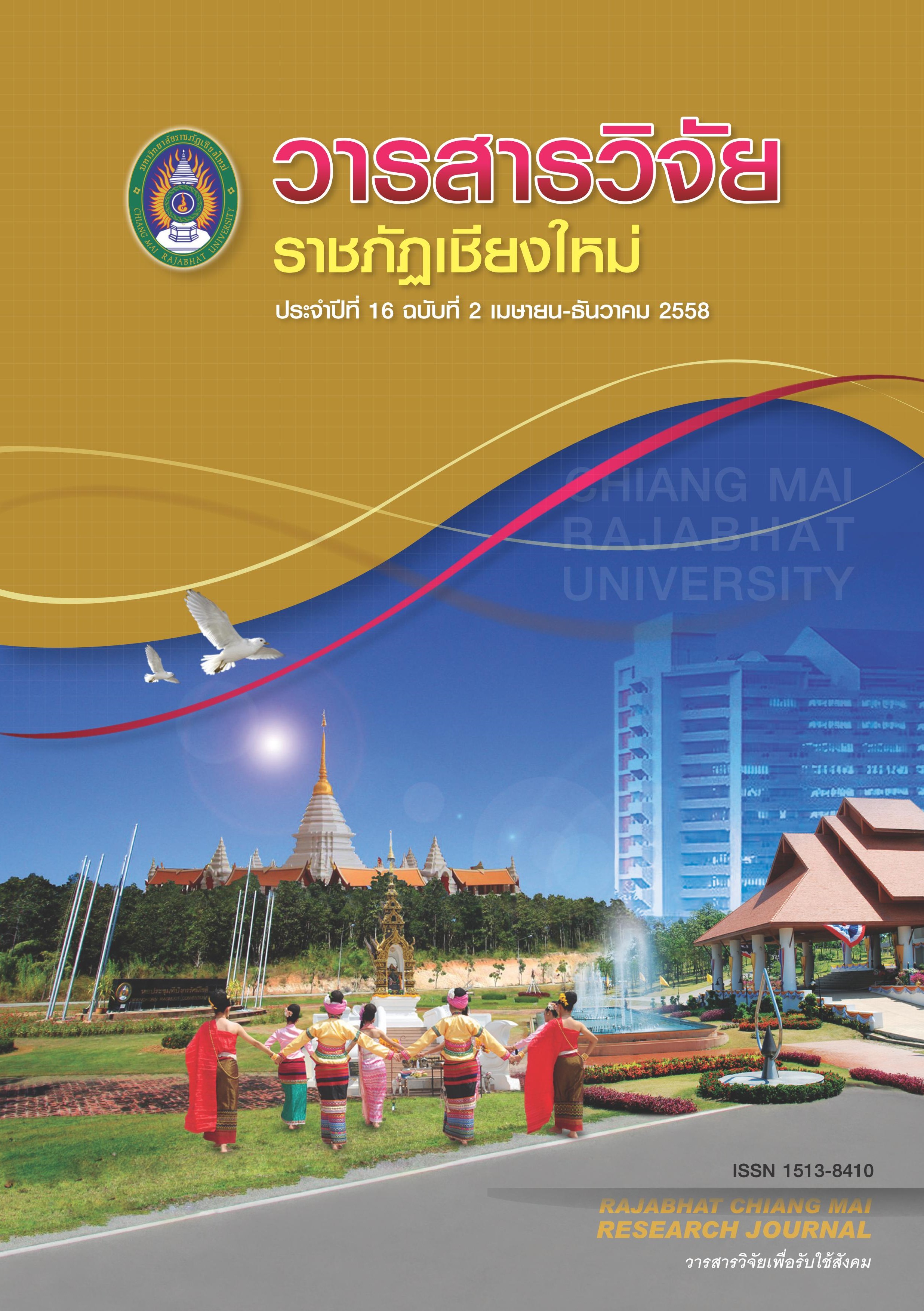Development of Accounting System of Occupation Group Ban Nongkahoo Amphur Muangtak
DOI:
https://doi.org/10.14456/rcmrj.2015.215048Keywords:
Development Account System, Occupation Group of Ban Nongkahoo, Amphur MuangtakAbstract
This research aimed to develop accounting system of occupation group Ban Nongkahoo Amphur Muangtak. The collecting data, the questionnaires were used from six persons of purposive sampling. Description statistics of percentage, mean and standard division were used to analyze the data. Studying an old accounting system result of occupation group found that the group used one notebook for writing trades list and only someday, had to take cash account of received cash and pay cash. Results of an account document, an account book, a control register had not make and the document for recording account did not make. Method of a storing document used pinching the document with the account book and a financial report did not make. This reason, an administration and a true finance of the occupation group could not know.
Therefore, researcher developed the appropriated accounting system with business of the occupation group in 5 accounting systems. They were 1) account systems of product buy and package, 2) a pay account system, 3) a production account system, 4) a product sale account system and 5) a cash account system. The accounting document, the account book, the control register and designing the need financial report and administration report of business were developed. Research results from achievement and contentment of users from development account system found that the achievement and the contentment of 5 account systems including development the accounting document, the account book, the control register and the financial report were well level. The overall image results of studying development account system were well level.
Downloads
References
กุสุมา ดำพิทักษ์ มาลี จัตุรัส และนภาพร เตรียมมีฤทธิ์. 2552. การพัฒนาระบบบัญชีสำหรับกลุ่มผลิตสินค้า OTOP กรณีศึกษากลุ่มอาหารจังหวัดปทุมธานี. รายงานการวิจัย มหาวิทยาลัยเทคโนโลยีราชมงคลธัญบุรี.
ปรีชญา ชีวะเกตุ. 2545. แนวทางปฏิบัติทางบัญชีสำหรับกองทุนหมู่บ้านและชุมชนเมือง: กรณีศึกษา กองทุนหมู่บ้านและชุมชนเมืองในเขตตำบลสุเทพ อำเภอเมือง จังหวัดเชียงใหม่. การค้นคว้าอิสระ บัญชีมหาบัณฑิต บัณฑิตวิทยาลัย มหาวิทยาลัยเชียงใหม่.
บุญชม ศรีสะอาด. 2535. การวิจัยเบื้องต้น. กรุงเทพฯ: โรงพิมพ์สุวีริยาสาส์น.
เมธสิทธิ์ พูลดี. 2551. ระบบบัญชี. พิมพ์ครั้งที่ 2. กรุงเทพฯ: ทริปเพิ้ลเอ็ดดูเคชั่น.
ยุพดี ศิริวรรณ. 2557. การบัญชีภาษีอากร. นนทบุรี: โรงพิมพ์โกลด์ เพาเวอร์ พริ้นติ้ง.
รัตน์ชนก พราหมณ์ศิริ. 2555. การวางระบบบัญชี. พิมพ์ครั้งที่ 1. พิษณุโลก: มหาวิทยาลัยพิษณุโลก.
วิภาวี ศรีคะ. 2546. การจัดทำบัญชีธุรกิจชุมชน ภายใต้โครงการหนึ่งตำบลหนึ่งผลิตภัณฑ์ในจังหวัดเชียงใหม่. การค้นคว้าอิสระ บัญชีมหาบัณฑิต บัณฑิตวิทยาลัย มหาวิทยาลัยเชียงใหม่.
วิไล วีระปรีย และจงจิตต์ หลีกภัย. 2551. ระบบบัญชี. พิมพ์ครั้งที่ 21. กรุงเทพฯ: โรงพิมพ์แห่งจุฬาลงกรณ์มหาวิทยาลัย.
สรินยา สุภัทรานนท์. 2557. ระบบบัญชี : การบูรณาการการเรียนและบริการวิชาการเพื่อพัฒนาระบบบัญชี กรณีศึกษากลุ่มอาชีพ.
เอกสารในการประชุมทางวิชาการของมหาวิทยาลัยเกษตรศาสตร์ ครั้งที่ 52.
สำนักงานพัฒนาชุมชนอำเภอเมืองตาก. 2557. รายงานการประชุมกลุ่มอาชีพบ้านหนองกะโห้. 20 สิงหาคม 2557.
สำนักงานพัฒนาชุมชนอำเภอเมืองตาก. 2557. รายงานการประชุมจัดตั้งกลุ่มอาชีพ. 14 สิงหาคม 2557.
สำนักงานพัฒนาชุมชนอำเภอเมืองตาก. 2557. หนังสือรับรองการจัดตั้งกลุ่มอาชีพ ที่ ตก.0119/35. 14 มีนาคม 2557.
สำนักงานพัฒนาชุมชนอำเภอเมืองตาก. 2557. เอกสารการประชุมกรรมการบริหารกลุ่มอาชีพ ครั้งที่ 1/2557. 10 กันยายน 2557.
Downloads
Published
How to Cite
Issue
Section
License
1. Articles, information, content, images, etc published in the “Community and Social Development Journal” are copyrighted by the Community and Social Development Journal, Chiang Mai Rajabhat University. In order to properly distribute the articles through print and electronic media, the authors still hold the copyright for the published articles under the Creative Commons Attribution (CC BY) license, which allows the re-distribution of the articles in other sources. References must be made to the articles in the journal. The authors are responsible for requesting permission to reproduce copyrighted content from other sources.
2. The content of the articles appearing in the journal is the direct responsibility of the article authors. The editorial board of the journal does not necessarily agree with or share any responsibility.














